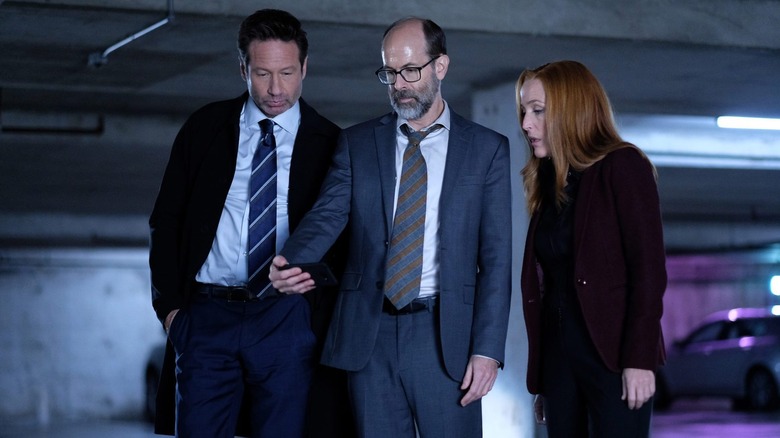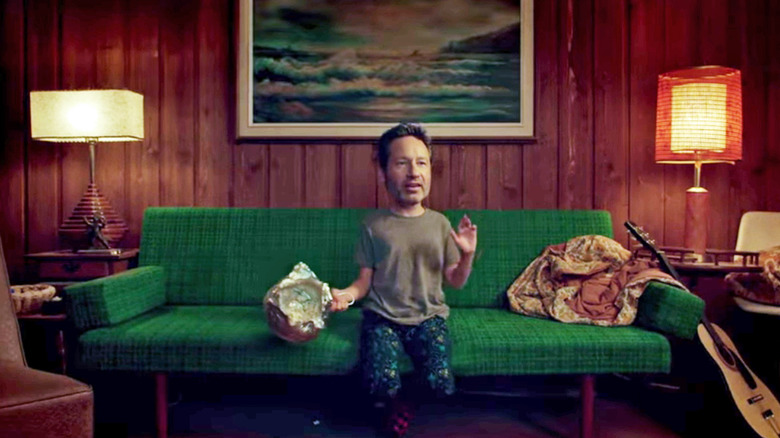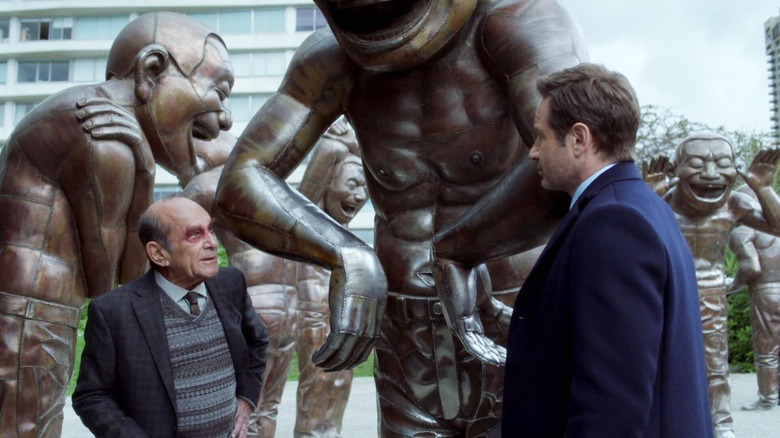Chris Carter’s 1993 paranormal investigation series “The X-Files” was one of the defining media outings of its decade. Few shows better captured post-Cold War America’s paranoid suspicions about its own government. Without an enemy to fight, and with no wars on the immediate horizon, 1990s America became wary of the systems that caused war and “enemies” to form in the first place. If we could live without them, why didn’t the government jettison them earlier? Could it be that the government was up to something sinister?
“The X-Files” manifested that paranoia through Fox Mulder (David Duchovny) and Dana Scully (Gillian Anderson), two FBI agents assigned to investigate paranormal cases. They frequently met aliens, monsters, psychics, vampires, and other unusual creatures. Sadly, each case usually involved a cover-up or a lack of hard evidence. The series was enough of a hit to last nine full seasons before its cancelation in 2002. “The X-Files” had no place in the post-9/11 world. It was a product of its time.
That didn’t stop Chris Carter from resurrecting the series for a tenth season in 2015, and then an eleventh in 2018. The hope was to bank on Gen-Xers’ ’90s nostalgia, of course, but the resurrections only highlight how much “The X-Files” was a relic of an earlier decade. Most of the episodes didn’t work, and the paranoia now felt naïve.
But some of the newer episodes were fascinating. Case in point: the 11th season episode “The Lost Art of Forehead Sweat” (January 24, 2018). The episode was written and directed by longtime “X-File” collaborator Darin Morgan, and in a 2018 interview with EW, he said that he wanted this one to look and feel like an episode of “The Twilight Zone.” Not so much in story, as in tone. He wanted his episode to feel unexpected.
With The Twilight Zone, you never knew what you would get
In “The Lost Art of Forehead Sweat,” Mulder is contacted by a strange man named Reginald Murgatroid (Brian Huskey), who claims they know each other. He explains to Mulder and Scully that he was actually their partner for many years, but that their memory of him — indeed, everyone’s memory of him — has been erased by a mysterious man named Dr. They (Stuart Margolin). Reginald explains that the Mandela Effect is the result of mass-level memory tinkering, and challenges Mulder and Scully to recall “untrue” things from their childhoods that, darn it, they definitely remember. In Mulder’s case, it’s an episode of “The Twilight Zone” that was never produced.
Darin Morgan said that, while writing the episode, he wanted to evoke the mysteriousness he felt while watching Rod Serling’s famous anthology series. Notably, he wanted to take people by surprise. After all, on “The Twilight Zone,” you never knew what premise you would get. Morgan said:
“The thing as a kid that I loved about ‘The Twilight Zone’ was something viewers who watch those nowadays don’t know: You had no idea what you were going to see. I watched The Twilight Zone in syndication, and you had no idea what the episode might be about. It could be a lousy one; it could be one of the greatest things you’d ever seen. And there was just sort of that excitement, where you had no idea what it was going to be.”
“Forehead Sweat” certainly kept viewers a little off-balance. And, to make sure viewers knew what was being evoked, Morgan even included an intro sequence that dramatized, in black-and-white, a fake “Twilight Zone” episode.
The title is an allusion to sweaty Twilight Zone protagonists
Morgan said that the Mandela Effect was great fodder to evoke “The Twilight Zone,” and he recalled several episodes when a Casandra-like character is exposed to something strange or supernatural, but cannot convince anyone else that it is real. Many “Twilight Zone” episodes climax with someone screaming the truth, sweating profusely. As he put it:
“If you have a memory of a certain thing, a childhood memory that turns out it’s not true, you start thinking, ‘Well, what else do I remember that may not be true?’ And if you continue down that path, you’ve gone insane, maybe. So that was the appeal. It was a very simple idea, and if you let it snowball, you end up like one of these ‘Twilight Zone’ characters who are trying to convince everybody that the world’s gone mad, and you’ve got a lot of forehead sweat.”
Morgan went on to lament the state of modern TV, saying that many shows had become heavily serialized … to a fault. He felt that long narrative arcs robbed TV of its ability to innovate on a weekly basis, rotating from horror to comedy to thrills at a writer’s whim. He likes episodic television better. “And I guess that was one of the appeals about writing for ‘The X-Files,'” he said. “You could write [stories] that were very different from the previous ones. That might drive modern-day audiences a bit crazy, but I enjoy watching shows like that, where you don’t know what you’re going to get.”
The slogan of “The X-Files” has long been “The truth is out there,” but “Forehead Sweat” offers the possibility that the truth is subjective and seeking it is futile. Dr. They later appears to point out that, in the late 2010s, people choose what they want to believe in anyway. It’s a nice confrontation of the ethos of “The X-Files.”










